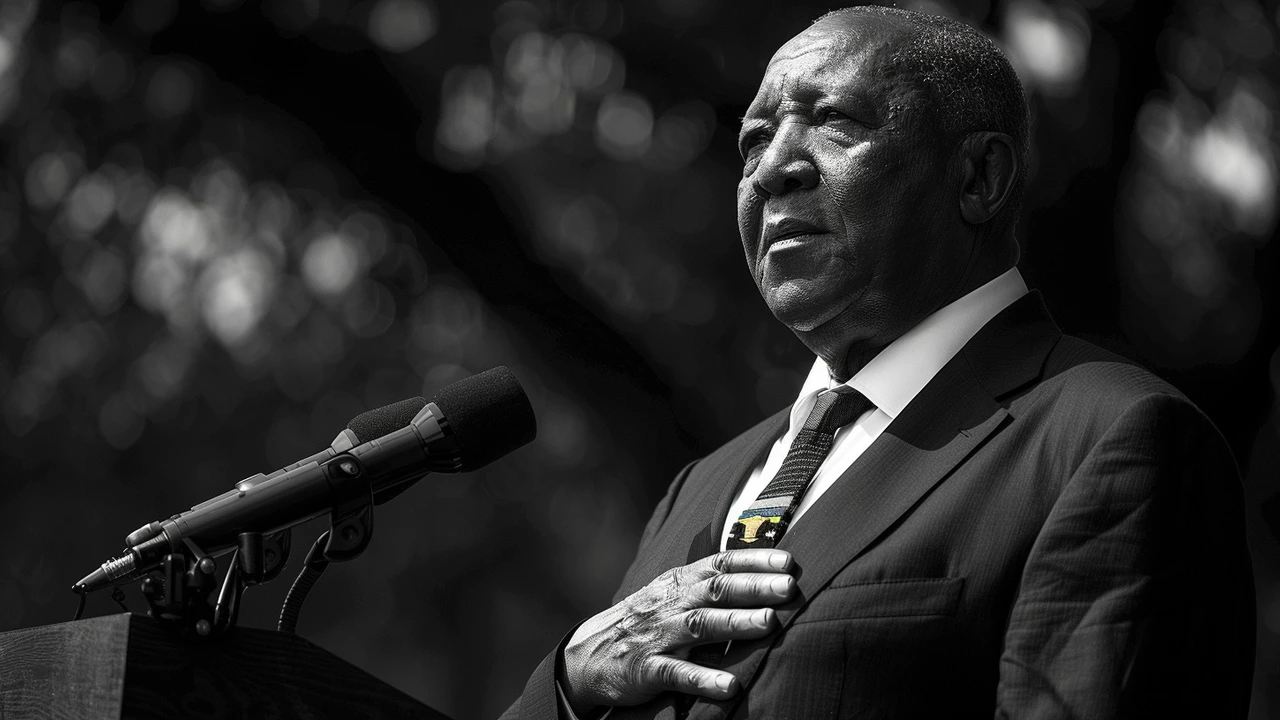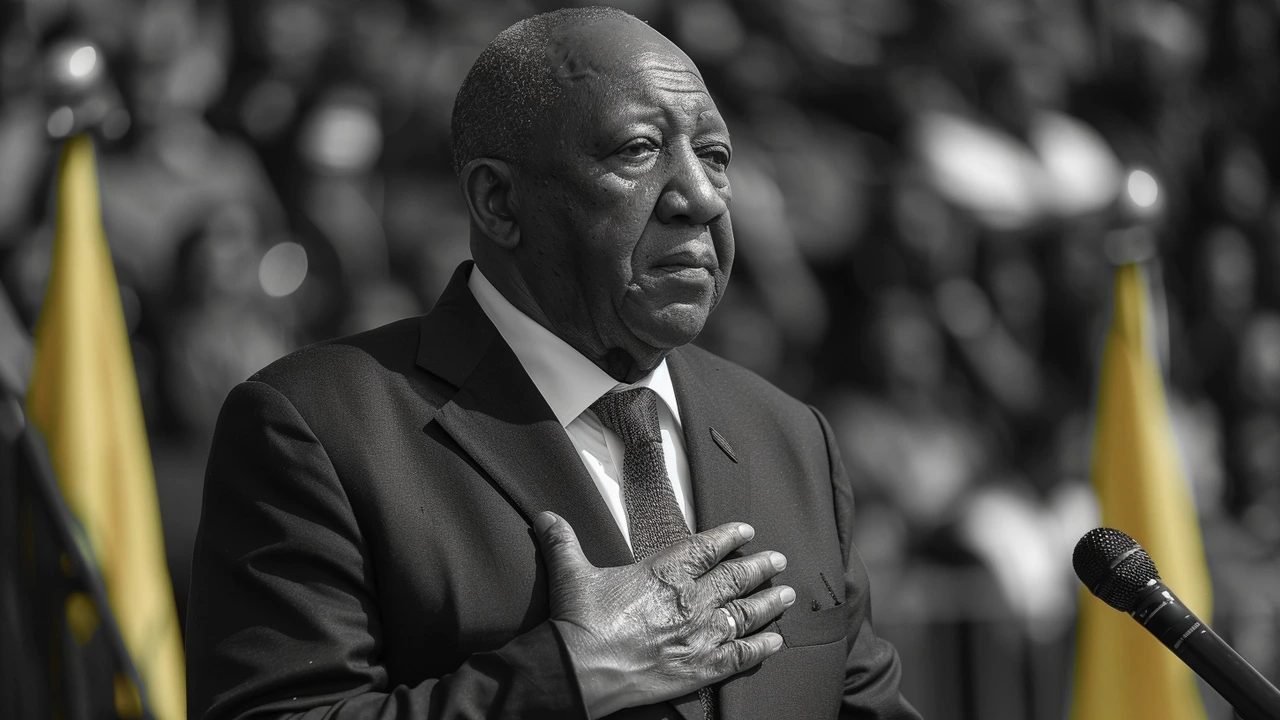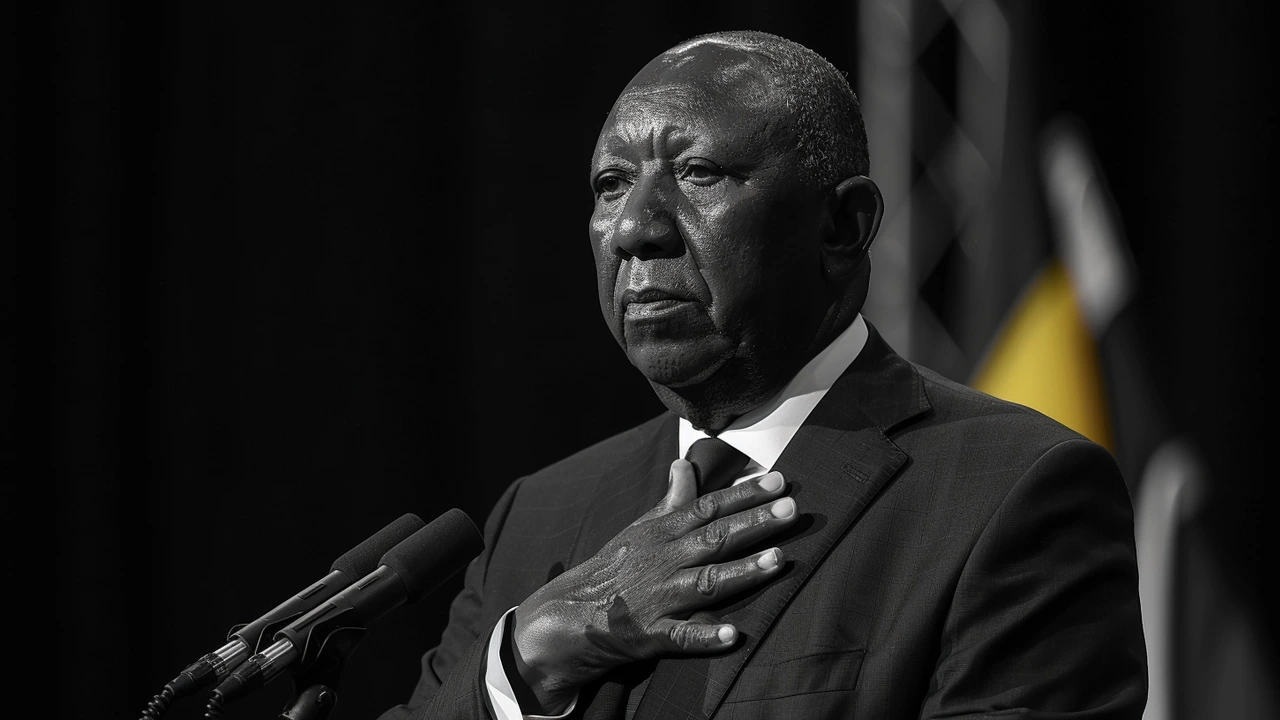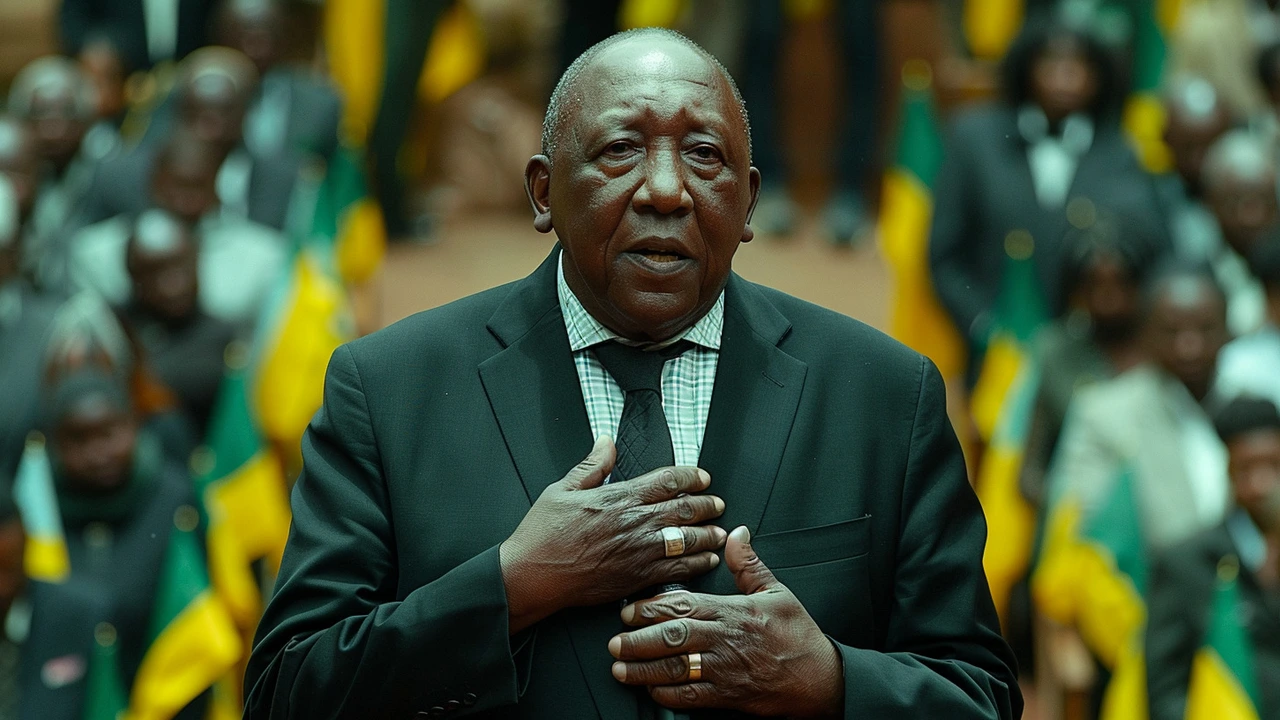Cyril Ramaphosa Warns of Deep 'Toxic Cleavages' in South Africa at Inauguration

Introduction
South African President Cyril Ramaphosa recently delivered a hard-hitting address during his second inauguration at the Union Buildings in Pretoria. In his speech, Ramaphosa didn't shy away from addressing pressing national issues, warning of persisting 'toxic cleavages' and the deeply entrenched inequalities that continue to plague the nation. This event comes at a pivotal moment for South Africa as the African National Congress (ANC) suffered significant setbacks in the recent May elections, losing its parliamentary majority for the first time.

The Context
The ANC's loss of its parliamentary majority has been a clear indicator of the public's rising discontent with the party's performance over the years. The erosion of faith in the ruling party is largely attributed to the persistent economic struggles and the perceived sluggish pace of reforms. Facing a stark reality, Ramaphosa didn't mince words while acknowledging the nation's disapproval. The election results have painted a vivid picture of the populace's call for change and better governance.
Economic Inequality: A Persistent Challenge
One of the most pronounced issues highlighted by Ramaphosa in his speech was the enduring economic inequality that predominantly follows racial lines. The numbers paint a grim picture—over 40% of South Africans remain jobless, a staggering statistic that underscores the uphill battle the country faces. Despite being one of the continent's most developed economies, South Africa continues to grapple with the legacy of apartheid-era inequalities. The wealth gap remains startlingly wide, with a significant portion of the black population still experiencing the brunt of economic disenfranchisement.
Unemployment and Public Services
Ramaphosa did not shy away from discussing the chronic unemployment issue and the deteriorating state of public services. High joblessness rates have ripple effects that reach into virtually every aspect of society, leading to increased strain on social services and heightened rates of violent crime. Acknowledging these interconnected challenges, the president emphasized the urgent need for comprehensive strategies aimed at job creation, service improvement, and crime reduction.

The Political Landscape
The recent elections led to a coalition government being formed between the ANC and the Democratic Alliance (DA), along with four smaller parties. This coalition, which critics from the left-wing liken to a 'grand coalition,' introduces complexities into the governance structure. Historically, the DA has been a vocal critic of the ANC, especially concerning issues of corruption and economic management. The DA's advocacy for free-market policies contrasts sharply with some of the ANC's approaches, adding layers of intricacy to the coalition's practical governance.
Challenges for the New Coalition
The coalition government, which now commands 273 seats in the parliament, faces an array of formidable challenges. First and foremost among these is the issue of job creation. With such a massive portion of the population unemployed, the government needs to formulate and implement effective job creation strategies. Another immediate concern is tackling the rising levels of crime, which has become a significant impediment to social stability and economic growth.
Public services are also in dire need of improvement. Years of mismanagement and corruption have left many essential services in a state of disrepair. Energy provision is another critical area that needs urgent attention. Frequent power cuts have not only disrupted daily life but have also hampered industrial productivity, further exacerbating economic woes.

The Inaugural Ceremony
The inauguration itself was a grand affair, marked by traditional elements such as praise poetry, helicopter flyovers, and a 21-gun salute. While these ceremonial aspects are often seen as symbolic, they also serve as a reminder of the country's rich cultural heritage and the diverse threads that make up its social fabric.
The Road Ahead
As President Ramaphosa embarks on his new term, the road ahead is fraught with challenges but also brimming with opportunities for positive change. The acknowledgment of the deep-rooted issues in his inaugural address sets a transparent tone for his administration. Addressing these issues will require not just policy shifts but also a renewed commitment to ethical governance and public service. The coalition government will need to navigate its internal differences and present a united front to effectively tackle the country's myriad challenges.
The future of South Africa under Ramaphosa's leadership remains to be seen, but the issues he outlined—economic inequality, unemployment, deteriorating public services, and violent crime—are not insurmountable. They will, however, require a concerted effort, innovative solutions, and unwavering political will.